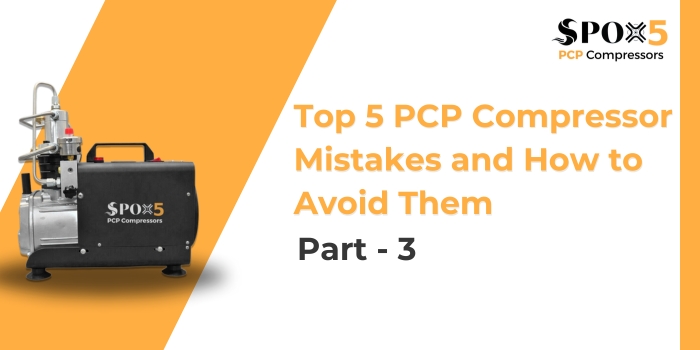In the previous parts, we explored common mistakes related to PCP compressor user manuals, system design, maintenance, and safety precautions. Now, let’s delve into the final mistake to avoid and conclude with some best practices for optimal compressor operation.
Mistake #5: Improper Operation
The Problem: Even with a well-maintained compressor and a properly designed system, improper operation can lead to inefficiencies and safety concerns.
The Consequences: Operating your PCP compressor incorrectly can result in:
- Reduced Efficiency: Incorrect settings, improper filling techniques, or exceeding recommended duty cycles can negatively impact the compressor’s performance and efficiency.
- Premature Wear and Tear: Operating the compressor under excessive loads or neglecting cooldown periods can accelerate wear on internal components.
- Safety Hazards: Ignoring proper filling procedures or failing to address potential malfunctions can pose safety risks.
The Solution: Ensure you understand the proper operation of your PCP compressor:
- Read the Manual Thoroughly: Familiarize yourself with the manufacturer’s operating instructions, including recommended filling procedures, safety protocols, and troubleshooting tips.
- Use the Correct Equipment: Always use hoses, connectors, and air tanks compatible with your compressor’s pressure rating.
- Monitor Pressure Levels: Pay close attention to pressure gauges during operation and never exceed the pressure limits of your equipment.
- Allow for Cooldown: After extended use, allow the compressor to cool down before shutting it off. This prevents overheating and prolongs its lifespan.
- Seek Professional Help: If you encounter any difficulties or malfunctions, don’t hesitate to seek assistance from a qualified technician.
Conclusion: Keeping Your PCP Compressor Running Smoothly
By understanding and avoiding these common mistakes, you can ensure your PCP compressor operates safely, efficiently, and delivers optimal performance for years to come. Here are some additional best practices to consider:
- Invest in Quality Equipment: Choosing a well-respected brand and a compressor suited to your specific needs ensures reliability and longevity.
- Keep Records: Maintain a logbook to record maintenance schedules, pressure readings, and any observations during operation. This information can be valuable for troubleshooting and monitoring your compressor’s health.
- Stay Updated: Technology advancements happen, so keep yourself informed about new maintenance practices or safety regulations related to PCP compressors.
By following these guidelines and prioritizing safe and responsible operation, you can maximize the benefits of your PCP compressor and enjoy its capabilities for a long time. Remember, a well-maintained and properly operated compressor is a valuable asset!

